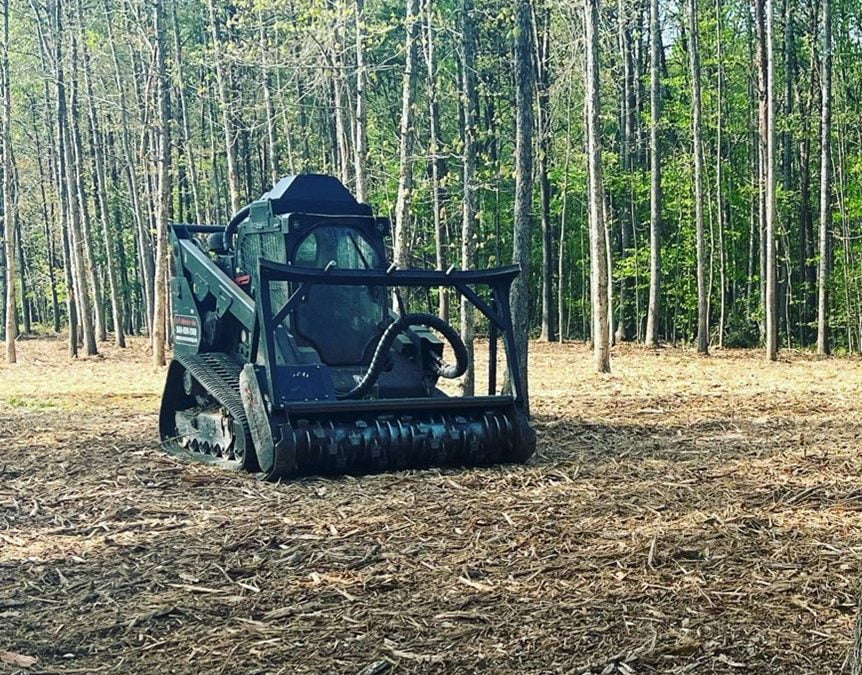There are a variety of different cutting tools available to complete forestry mulching. All tools will perform to some degree in virtually all setting, but the closer you can match your tool to their optimal feed, the more efficient and productive you will be. Standard carbide teeth provide a good all-purpose balancing wear life, durability, and productivity. Knife teeth are used for faster cutting and finer sizing in fewer passes. For a customer who is expecting an area that is easily handled to maintain, ie: growing grass and being able to use a lawn mower with smaller, finer mulch debris, knife teeth leave that finer material over carbide teeth leaving larger chunks of debris once the project is completed.

Carbide teeth are versatile and typically better suited for hard woods and around other various materials such as rock, etc. When working in areas where rock cannot be avoided, it is recommended to use carbide teeth. Again, leaving a larger debris once the mulching has been completed. While carbide teeth are durable and more cost effective since they last a lot longer, however they just don’t leave the quality of material that we like to offer. The standard carbide tooth with its chisel point with rounded top prevents it from working quickly as teeth with sharper edges.

Knife teeth feature a sharpened cutting surface that cuts rather than pulverizes the material. They are similar to the knives found in a tree chipper. They typically produce a finer, more uniform sized material than carbide teeth. Knives can be sharpened numerous times before they require replacement, while some are even double-sided, allowing them to be flipped around once they are worn on one side. Ultimately, making them more effective in forestry mulching, and more cost effective for our business and the customer. There is more maintenance on our end with knife teeth, such as sharpening, maintaining balance on the drum, etc, however the quality of the debris left far exceeds the extra time and maintenance.

The other key point is the quality and knowledge of the operator for the equipment. They play a key role in the tools as well. While each kind of teeth are different, they both wear faster when they are not used properly. If the leveling of the machine is not accurate, the drum will allow the teeth to be exposed to dirt and rocks, etc wearing the teeth faster than expected and leaving a larger material. In turn, the quality of the project is not what the customer has expected.
Ultimately, researching the best possible tools for our equipment to provide an overall quality product for our customers is the main priority. We are always researching better tool options to leave a better product and keep maintenance more cost effective for our customers. We will continue to keep up with the technology and research to provide the overall best outcome.


So give us a call today at 540-699-2149 to set up an estimate on cleaning up your property with our quality equipment and knowledge to leave the best, maintainable debris for your project.



Recent Comments